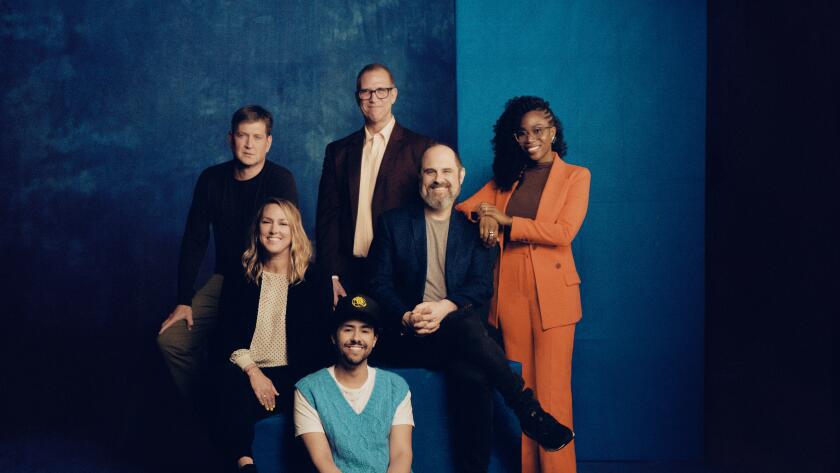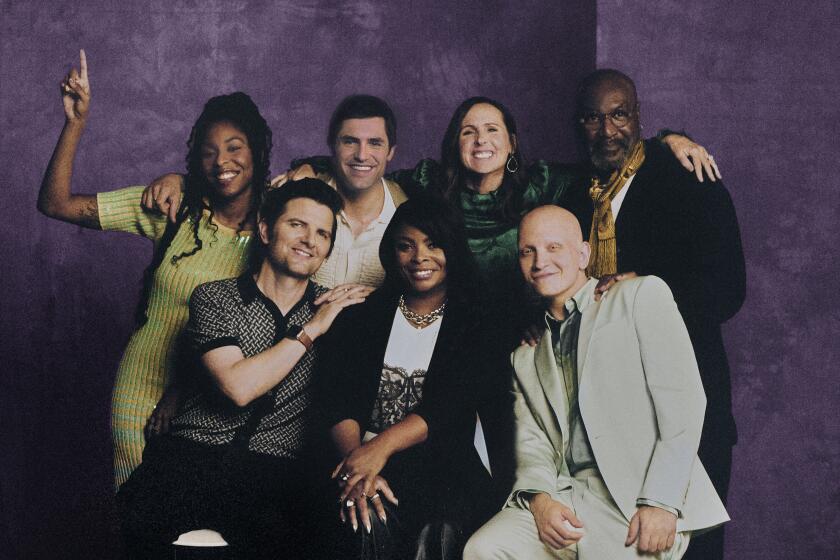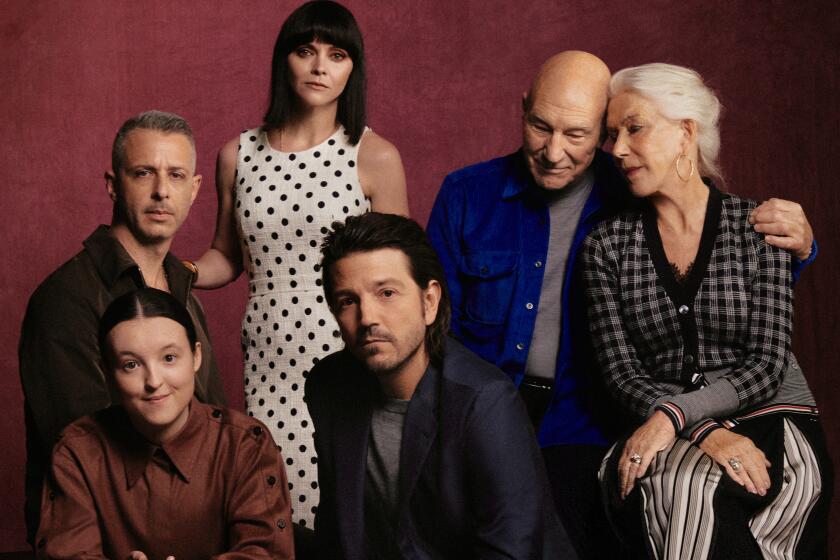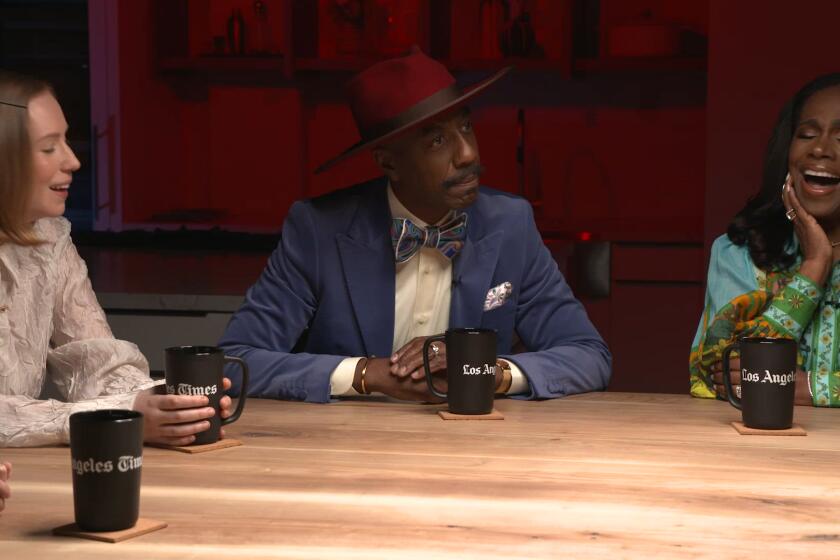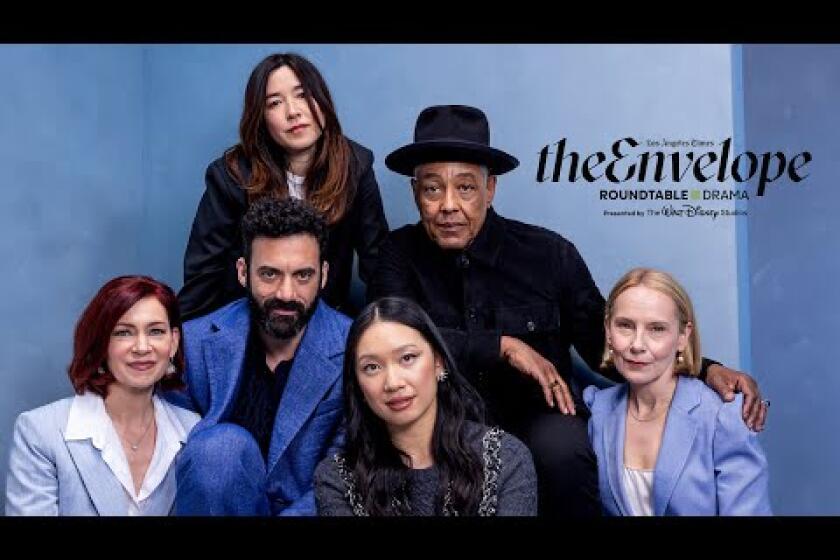
The timing couldn’t have been scripted any better. On the eve of the Writers Guild of America strike — called as the contract negotiation period with major studios ended without a new deal in place — six storytellers gathered for The Envelope’s annual Showrunners Roundtable to share what it’s like crafting the sort of dynamic storytelling that has helped make this television era so distinctive. Few things get a group of Hollywood writers talking quite like a critical moment for the viability of their craft.
“It’s a fun opportunity to try and explain residuals to your dad,” Bill Lawrence, who co-created Apple TV+’s “Shrinking,” said, playfully acknowledging the difficulty of breaking down the high stakes of the issues at play for the average person to understand.
For Craig Mazin, who co-created HBO’s adaptation of the popular video game “The Last of Us,” the current juncture feels different from past standoffs with studios.
“I remember very distinctly how everything went down in 2007, and this feels different in the sense that I think even the companies understand on a fundamental level that they have f— up,” Mazin said. “It’s almost like someone finally pointed it out to them and said, ‘You’ve just blown out the foundation of your own house, and now the whole thing’s crumbling down around you.’”
John Hoffman (“Only Murders in the Building”), Bill Lawrence (‘Shrinking’), Craig Mazin (‘The Last of Us’), Janine Nabers (‘Swarm’), Liz Tigelaar (‘Tiny Beautiful Things’) and Ramy Youssef (‘Ramy’) join Los Angeles Times Staff Writer Yvonne Villarreal for the L.A. Times Envelope Showrunners Roundtable.
Janine Nabers, who co-created the serial killer series “Swarm,” Liz Tigelaar, who adapted Cheryl Strayed’s “Tiny Beautiful Things” book, John Hoffman, the co-creator of the whodunit comedy “Only Murders in the Building,” and Ramy Youssef, the creator and star of “Ramy,” joined in the conversation that delved deeper into the existential moment Hollywood writers are facing, the spoiler debate and knowing when to let Harrison Ford tweak a scene so that he’s shirtless while shaving.
Excerpts of their conversation have been edited for length and clarity.
I wanna start with somewhat of an icebreaker: Can you share your most embarrassing moment in a pitch meeting?
Bill Lawrence: People often ask why the show “Scrubs,” which was owned by ABC and Disney, [ran] on NBC, a rarity in network television. I won’t say who the gentleman was, but .... “Scrubs” is a very personal show. It was about a buddy of mine, named JD, who’s a real cardiologist and heart surgeon here in L.A. still. I was pitching that show and, in his defense, the president of the network at the time had just taken a red-eye [flight]. But he was sitting so I couldn’t see his face. And I was right at the Dr. Cox part and I literally heard [imitates snoring sound]. He was snoozing, and there was a pause and I went, “How’s the pitch going?” And by the way, we did the equivalent of leaving that pitch, like, [imitates tip-toeing out quietly]. The real answer of why “Scrubs” was not on ABC is ...
Craig Mazin: You’re boring.
Lawrence: That they fell asleep during the pitch. That was rough.
Mazin: I did a pitch once; I think it was for a rewrite on a comedy movie. I went in to pitch the producer, and it was going really well. About five minutes in, his assistant comes in and she says, “Can I just borrow you for one second?” And this is in a weird glass room, so I can see the two of them walk away, and then [after about] 10 seconds, he just goes running. And I’m like, “What the f—?” The assistant is now in tears. And she’s like, “You can validate your parking over there.” But she comes back in and she goes, “Sorry, don’t leave. He’s coming back.” And he comes back. He’s out of breath, he’s sweating and he goes, “Sorry, so sorry. We thought that our newborn baby was kidnapped. But it turns out that he was just in the other room.” He was like, “OK. Continue.” And he had obviously been crying, and he’s shaking from adrenaline, and he made me continue my ... funny pitch.
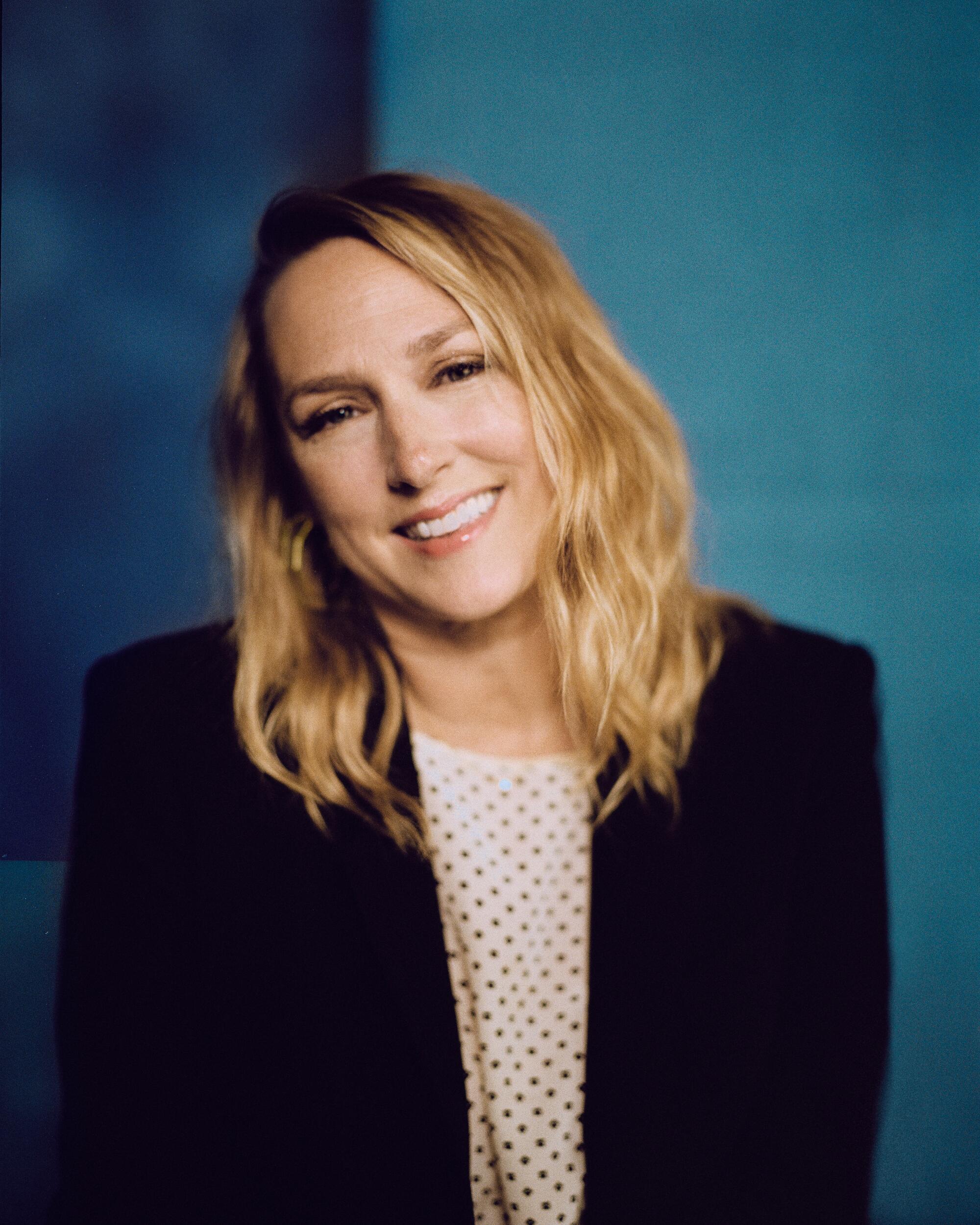
Take me back to the early years. What do you remember about the first time you tried to pitch an idea in a room? Liz, you got your start at “Dawson’s Creek.” You were an intern, then a writer’s assistant. What do you remember about trying to offer a suggestion in that room?
Liz Tigelaar: I wrote a freelance for “Dawson’s.” It was a boat race episode. I was always like, “Did you see this really great ‘Rashomon’ episode?” And people were like, “Yes!” And I’m like, “OK, so it was the boat race one after that.” I was an assistant so, I didn’t do a ton of pitching, but when I went on to “American Dreams,” I did a lot of enthusiastic pitching in that room. And actually, Josh Reams, who was a mentor of mine, very kindly pulled me aside and said, “Um, if you say something three times and nobody has responded, you’ve got to stop.” And it was so hard for me to do, because I was so resolute in my mediocre ideas.
How did you find it, Janine? You were coming as a playwright into the TV space.
Janine Nabers: It’s interesting, because I was very, very poor, living in New York when I got staffed on [Bravo’s “Girlfriends’ Guide to Divorce”]. Marti Noxon, shout out to her, I would not be here without her. I was living in a 330-square-foot apartment with a crazy cat, and then I got this job offer to write for really rich, white divorced ladies in L.A., living their best lives. Marti was like, “We need something for the daughter to do that’s insane with her friends.” And I was like, “What are all the insane things that I’ve done being an idiot running around New York with my friends? Then I pitched, “What if they take tampons and dip them in alcohol and put it up their hoo-hah and just have a party.” And that’s what made it, because I was a dumbass and did that once.

Mazin: Does it work?
Nabers: It works, it worked. I wouldn’t .... Kids: Don’t.
John, “Only Murders in the Building” is this whodunit wrapped in a comedy with an all-star cast. You have to think about the arc of characters and also come up with a clever murder mystery and think about comedic beats. How intimidating has that been?
John Hoffman: I’m intimidated by your description. I’ve screwed myself with this show because it is many challenges. I’ve watched great comedy writers come in and go, “Wait a minute, wait a minute ... we have to know Episode 9, now? We’re on Episode 2.” It takes a big plan and then the intimidation factor of stepping it up for the talent involved in this show [with Steve Martin and Martin Short]. I just wrapped Season 3, and we have Meryl Streep and Paul Rudd joining. But that’s the thing, you’re, sort of, like, “Aaaaah. How am I gonna make that work?” Then you see what they do with what you wrote and you’re like, “That wasn’t gonna work until she did it.” She Streeped it.
Lawrence: You just take credit for it, man.
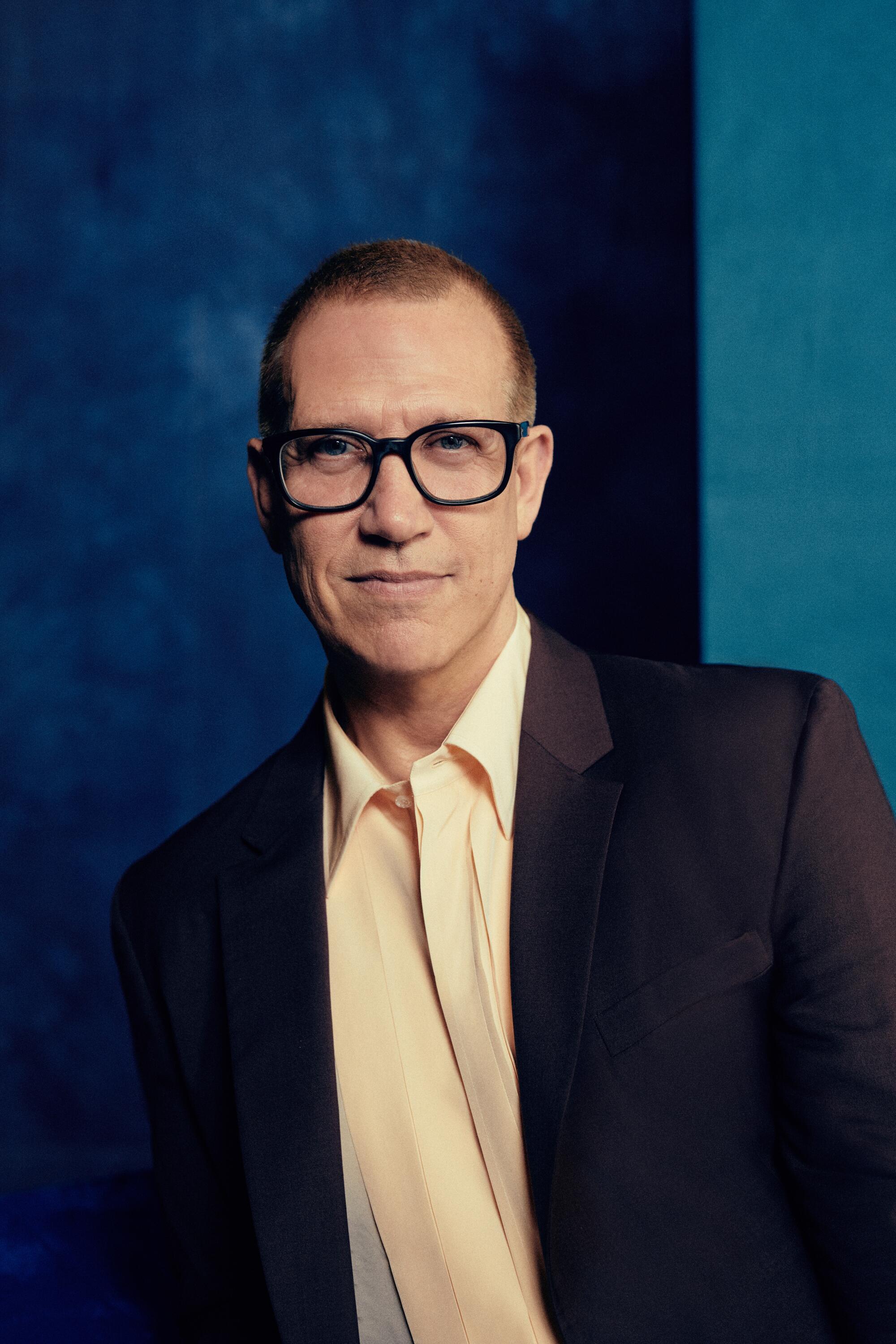
Ramy Youssef: It’s really important that you take credit for that. Yeah. (Laughs)
You have Meryl Streep. Bill, you have Harrison Ford in “Shrinking.” Describe what that nervousness is like.
Lawrence: The first series I co-created was called “Spin City.” And Michael J. Fox was an icon for me. And to give him lines he was saying, it freaked me out. And now to be doing it with Harrison Ford is very, very weird. To his credit, he’s such an inspiring guy because he’s 80 years old. He’s doing things now just because he hasn’t done them before.
Mazin: He’s 80?
Lawrence: He turned 80 on set and immediately made everybody drink tequila. He’s so game to learn. Not only with me, but even with the younger writers, saying, “Hey, I haven’t done a TV comedy ... I might not listen, but tell me how you would pop the joke.” The last situation I had with him, I got a call, and they’re like, “Hey, we’re not shooting because Harrison has a problem.” So I called up, I’m like, “What’s the problem, man?” “My character is shaving and I thought it was at the end of the day, like before I go out to dinner or something.” “No, it’s in the morning before work. What’s the problem?” “I’ve got to shave shirtless.” “If you’re shirtless, you’ll shoot the scene? What do you need?” He’s like, “10 minutes to do some push-ups.”
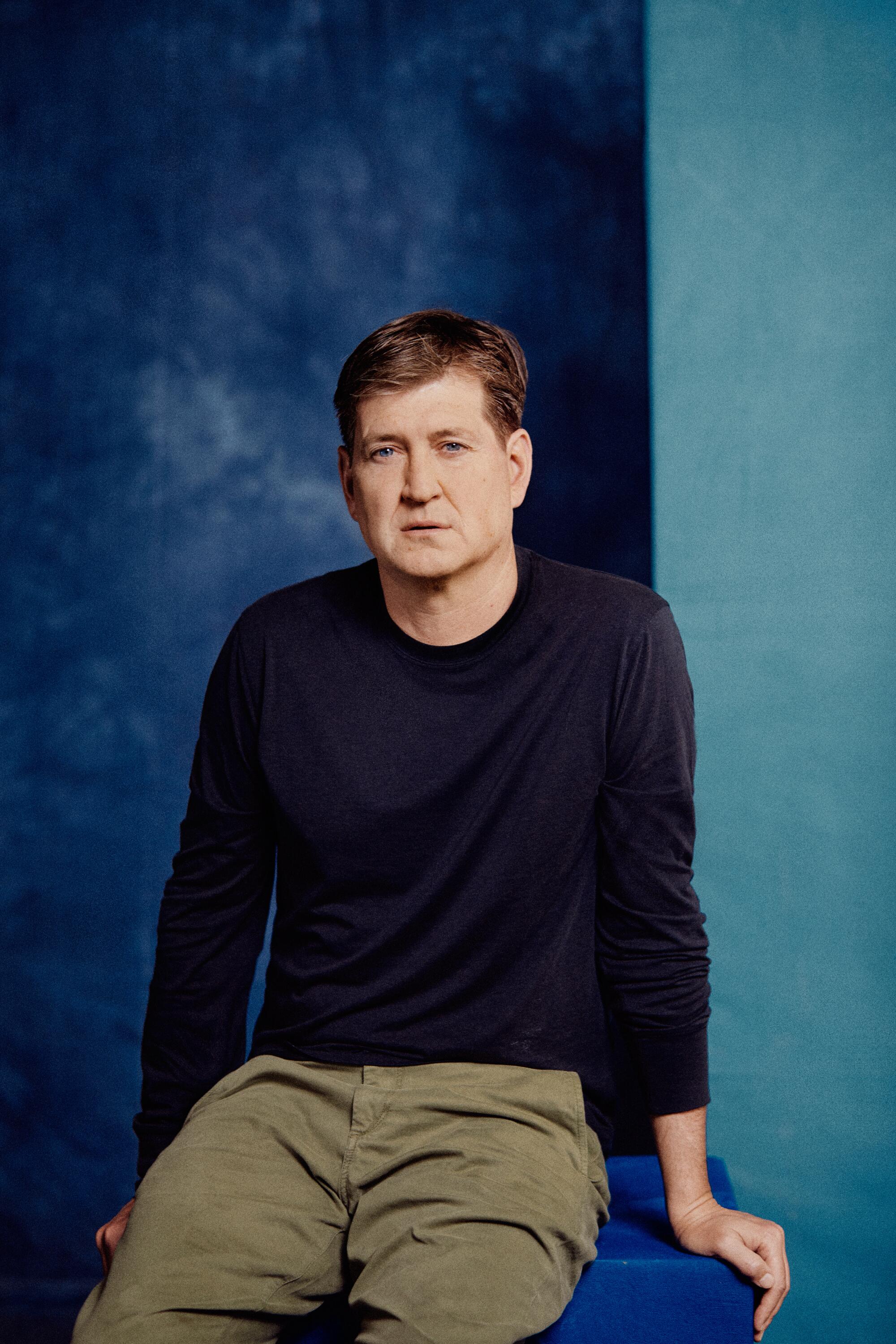
Nabers: That’s so awesome.
What would you say is the most crucial quality that a showrunner needs? Ramy, you’ve also taken the director role; you’re wearing different hats.
Youssef: It’s really important to not worry about stuff that you don’t have to worry about at the time that you think you have to worry about it. It feels just like worry management. Like, OK, I’m just gonna worry about this thing today. Because that other thing, I’m gonna worry about it on Friday. Once I started breaking down my schedule —
Mazin: I’m stealing “worry management.”
Youssef: It’s huge, because once you can kind of do that, then you’re able to do all of it. I also have the element of being on-screen as well. And so, there’ll be nights where I’m doing a rewrite, then you show up in the makeup chair the next day and it’s like, “Why do you have those bags under your eyes?” And you’re just with a MacBook Pro getting ice [placed under your eyes]. In our show too, almost every season I’ve had a relatively new hour of stand-up. So, everyone will come out, watch the stand-up, then we’ll start drawing everything from that.
Lawrence: That’s cool. Can you do stand-up about one of my shows? Because that’d be really helpful for me.
Youssef: Maybe if I hang out with Harrison for a little bit.
Lawrence: Shirtless.
Youssef: I already have three minutes on his push-ups —
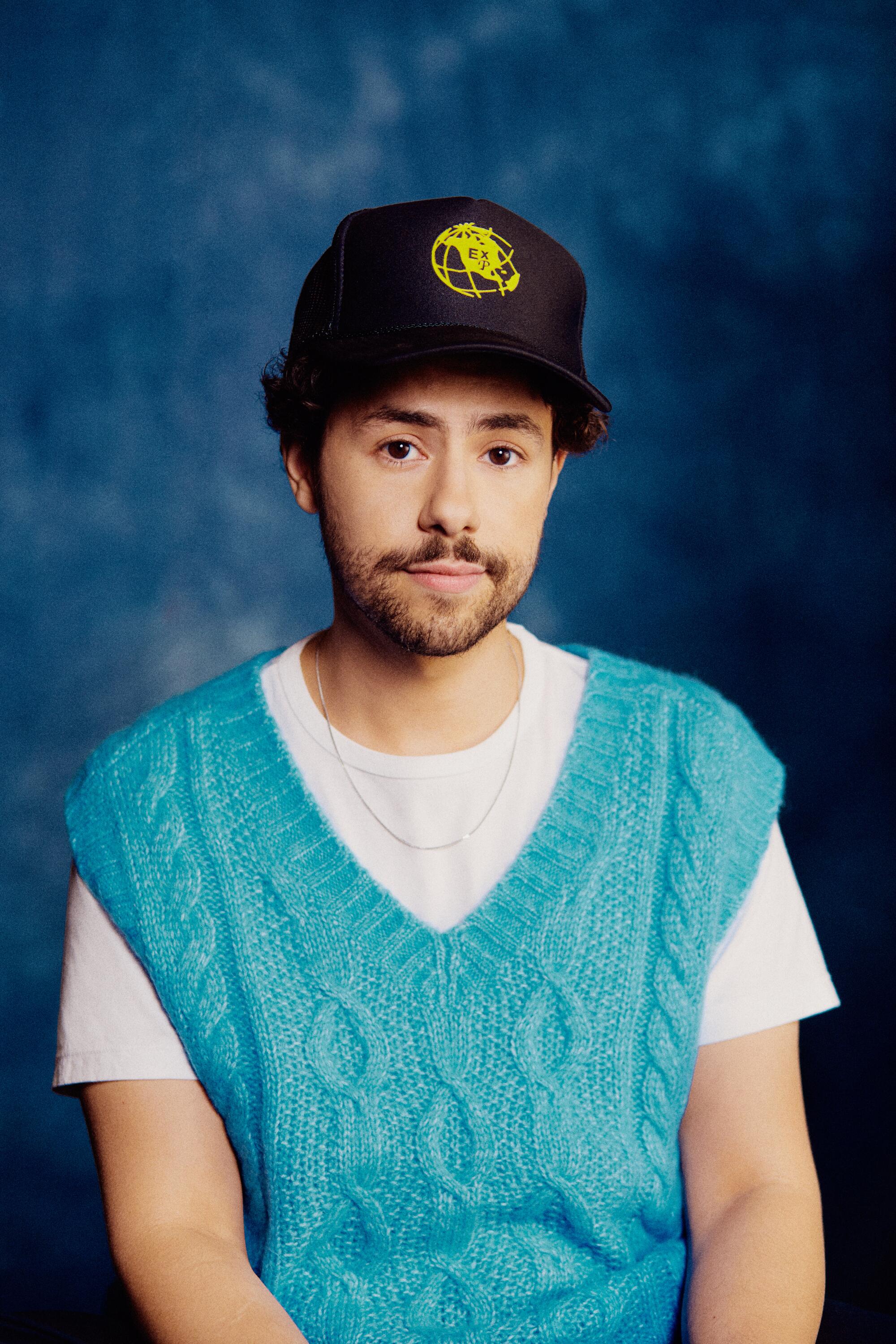
I want to get into something that has become a hot topic in our newsroom, which is spoilers. How do you feel about spoilers, what constitutes one, like, what is the timetable on it when people are watching on their own time?
Tigelaar: I don’t know. I guess I don’t feel like I necessarily write things with big [plot points], you know ... I have emotional spoilers.
Mazin: I adapted a game, and the game’s been out for 10 years. People know how it ends. Now, we do things differently, and maybe we were going to do something different at the end, or do it in a slightly different way, but ultimately to me, spoilers are just overrated. I think for you [points to Hoffman], for murder-mystery, it’s so important to hold that back. You have the burden of creating some kind of mechanism that no one can guess.
Hoffman: There are times when I get very crazy about it, even down to the point where, when you’re shooting, you’re like, “Oh, wait a minute, we’ve got how many extras in this space here?” when we’re shooting this critical scene to Episode 10.
Phil Dunster, Janelle James, Adam Scott, Molly Shannon and others reveal the push and pull of being funny on TV
Youssef: Yeah, it’s easy to avoid, though. Like, “Big Little Lies” — I just found out the lie. For years, I didn’t know the lie.
Lawrence: You guys remember “The Sixth Sense”? I remember everybody going, “Don’t tell me the ending.” But you get to a point where you’re like, “It’s been a year, you have no one to blame but yourself.” What do you think is the amount of time you have to wait for that stuff?
Youssef: Forty-eight hours. Just get it together.
With something like “The Last of Us,” and people know what’s going to come next, what’s that challenge for you when you have someone that’s so beloved, like Pedro Pascal, and knowing that his character would likely die in Season 2 if you’re following the narrative of the source material?
Mazin: Let me just go on record, again. We don’t talk in any kind of certainties. He might not, that’s the thing. He might, he might not. I will neither confirm nor deny, that’s the thing. Because we do make changes. There’s emotional spoilers, there are emotional things. What I think we do, and I think of people who play the game and then watch our series probably saw, is that sometimes the emotional spoiler happens, maybe plot-wise it’s the same, but the way it happens is wildly different. It’s a little bit like if you’re adapting a novel.
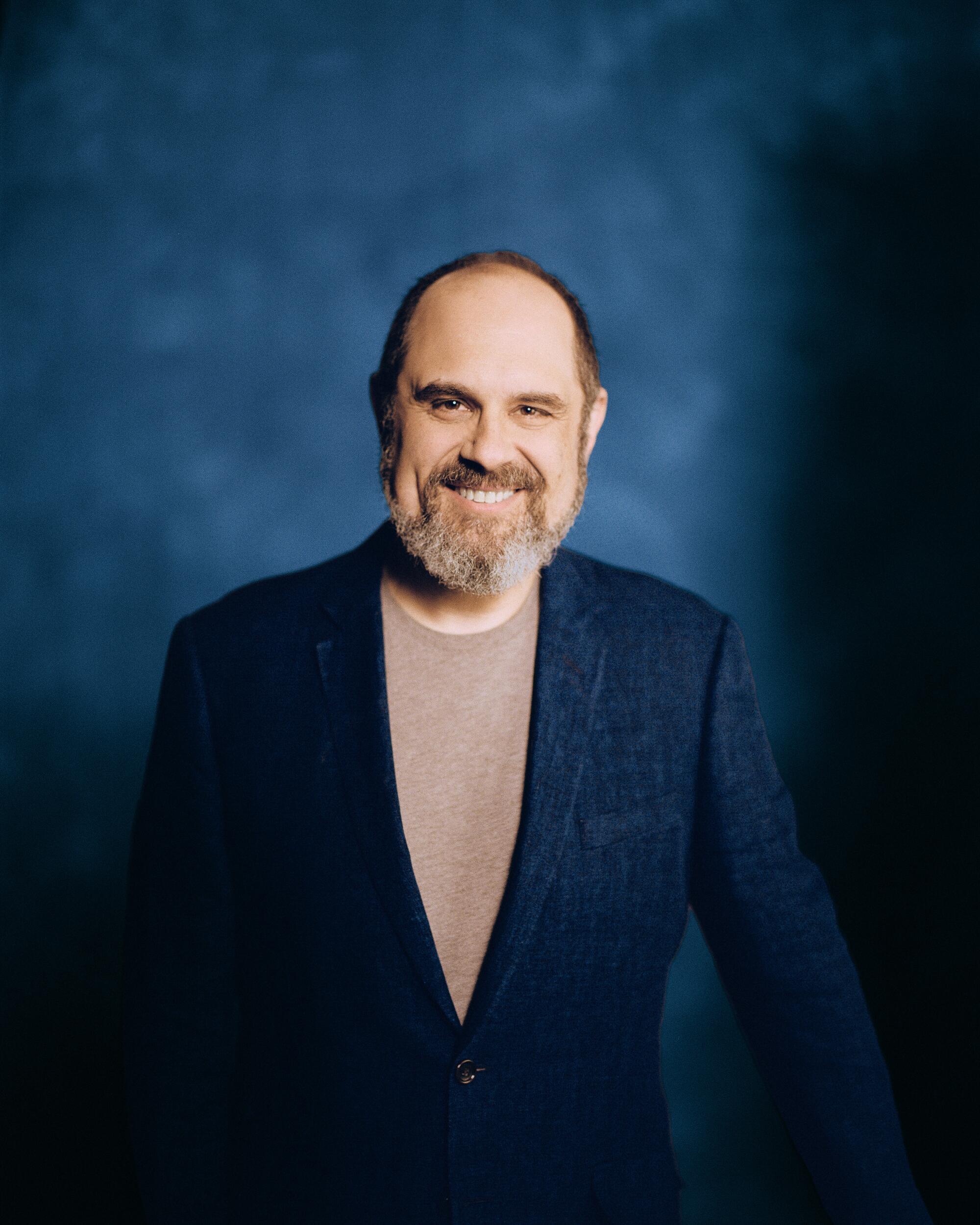
This is a critical year for writers when it comes to compensation in the age of streaming. Top concerns have been residuals in streaming, the rise of mini-writers rooms, shortened seasons. What do you want out of this moment?
Lawrence: [With] residuals, the real conversation is [that] TV writing would be in danger of being only for young men and women whose families could support them. I remember I sold spec scripts to “The Nanny” and “Boy Meets World” when I was out here, and I could survive off those [for years] while trying to be a writer. And if that goes away, this will become a business that you can only do if your parents are well-off enough to help pay your rent.
Mazin: And the whole mini-room thing, just so people understand, it used to be that a writer would come up with an idea, write a pilot, maybe you would shoot the pilot, and then the network would say, ”We’re making a series,” at which point you would hire a whole bunch of people to figure out what the season is, and you’d all work together. And now they say, “OK, why don’t you hire a bunch of people to figure out the season, then we’ll tell you if we’re going to do it. And if we do it, most of you are fired anyway.”
Tigelaar: “And we’re going to pay them WGA scale.”
Lawrence: And they’ll take it, because there are no other gigs.
In a roundtable conversation, Diego Luna, Helen Mirren, Bella Ramsey, Christina Ricci, Patrick Stewart and Jeremy Strong dive deep into their appreciation of writers, mothers and “not giving a f--”
Nabers: And also, people are not able to know what set is like when they sell a show. The mini-rooms have blocked the growth of people. I had a boss leading a huge production who had never been on set before, and that is crazy. We’re setting people up for failure. So even with my mini-room, which was 14 weeks, I went to Amazon, and I was like, “Listen to me, this is the only all-Black room you’ve ever had. These writers are going to set.”
Mazin: Also the job is to write for production. How do you know how to write for production if you’ve never experienced production? So people are getting a third of the job experience and then being told, “You have to go out and get another job where you only have a third of the experience to do it.”
Nabers: There are people in this industry who are very rich, who abuse power and abuse mini-rooms, and they hire all these writers and they take all of their outlines. And then as soon as the contract is done, they take their work and they put their name on it, and those people are erased. And that is a fundamental problem with this industry.
What’s been the temperature in the room, Liz? What is your staff talking about?
Tigelaar: It’s interesting, because when we struck in 2007, at least from my perspective, the things we were striking for felt conceptual and heady. Now I think every single writer is touched by what’s happening. I think [we need] to stand up and say, “You know what? I’m not going to link the writers’ pay to production, because as we all know, production might never happen, or it might happen a year from now.” And in what other industry can people take a job and not know when they’re going to get paid? People need to get paid when they do the work, and they need to be paid for the work that they do. And you, as a showrunner, have to stand up for that.
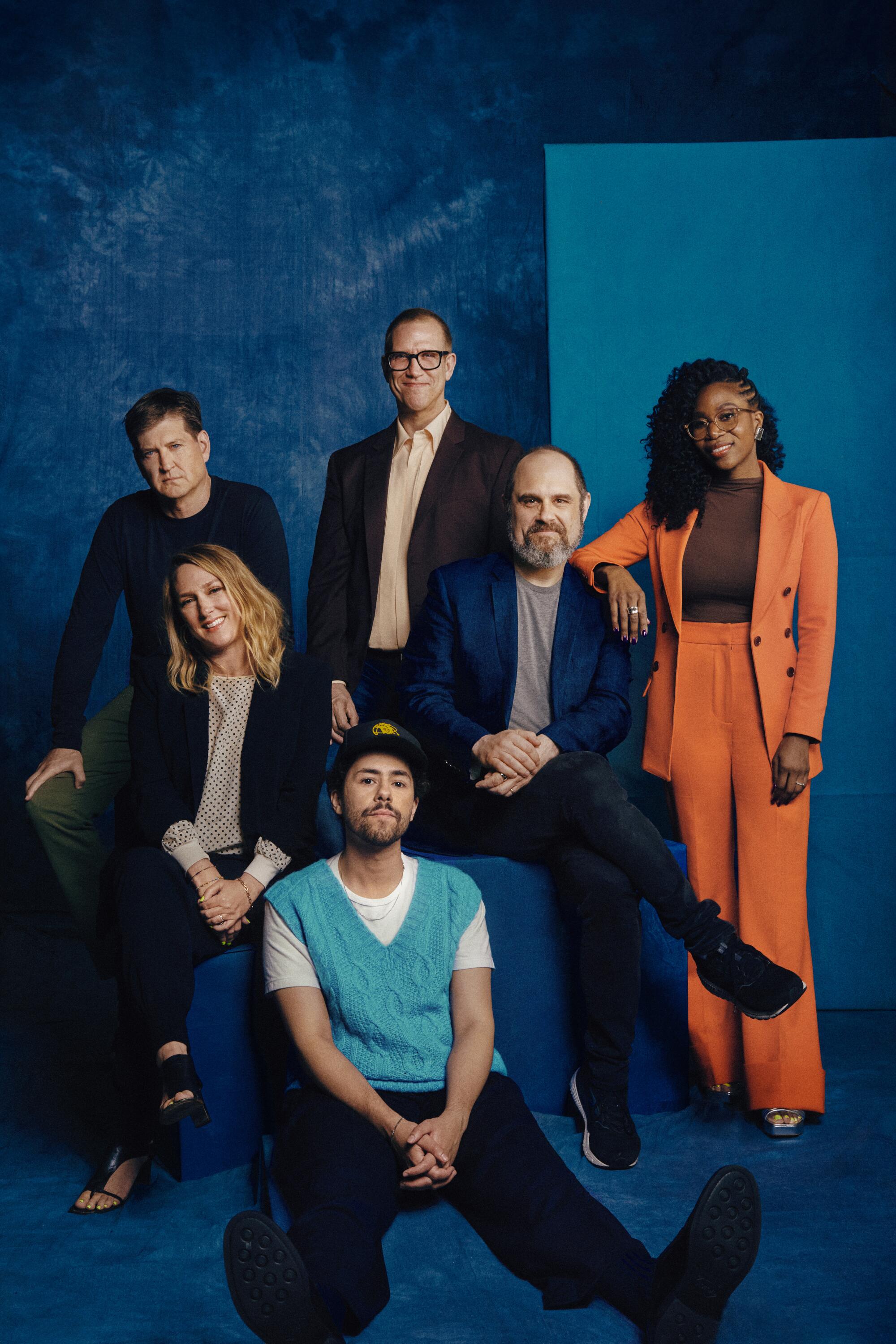
Careers in the entertainment industry can be mysterious for those just starting out, and even for those working in the business. The Los Angeles Times brings you explainers and advice for starting and building your career in Hollywood.
More to Read
From the Oscars to the Emmys.
Get the Envelope newsletter for exclusive awards season coverage, behind-the-scenes stories from the Envelope podcast and columnist Glenn Whipp’s must-read analysis.
You may occasionally receive promotional content from the Los Angeles Times.
